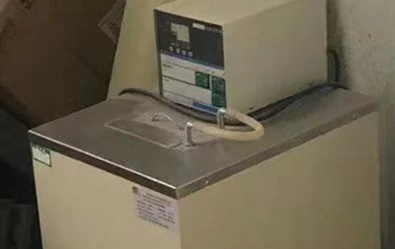loading...
- No. 9, Xingyuan South Street, Dongwaihuan Road, Zaoqiang County, Hengshui, Hebei, China
- admin@zjcomposites.com
- +86 15097380338
- Welcome to visit our website!
High-Quality Water Softeners for Your Home | Improve Water Quality
Understanding Water Softeners Importance and Benefits
Water softeners are essential devices for households and industries that rely on water for daily operations. Hard water, which contains high concentrations of minerals like calcium and magnesium, can lead to various problems, including scale buildup in pipes and appliances, reduced efficiency in cleaning, and even skin irritations. By using a water softener, you can significantly improve the quality of the water you use in your home or business.
How Water Softeners Work
At the core of water softener technology is the principle of ion exchange. The device is typically filled with resin beads that are charged with sodium ions. When hard water flows through the softener, the calcium and magnesium ions in the water attach themselves to the resin beads, displacing the sodium ions. This process effectively removes the hardness from the water, allowing for “softer” water to flow through the system. Once the resin beads become saturated with calcium and magnesium, the system undergoes a regeneration cycle where a brine solution—rich in sodium—is flushed through the beads to recharge them for future use.
Benefits of Using a Water Softener
1. Enhanced Appliance Lifespan One of the most compelling reasons to invest in a water softener is its ability to extend the lifespan of your appliances. Hard water causes scale buildup in water heaters, dishwashers, and washing machines. Over time, this buildup can lead to decreased efficiency and costly repairs or replacements. Soft water mitigates this issue, allowing your appliances to operate more effectively and for longer periods.
water softener

2. Improved Cleaning Efficiency Hard water can hinder the effectiveness of soaps, detergents, and cleaners. When using hard water, you may notice that you need to use more detergent to achieve the same cleanliness. Soft water enhances the cleaning power of soaps and detergents, leading to brighter laundry, cleaner dishes, and less soap scum in showers and tubs.
3. Healthier Skin and Hair Many individuals with hard water report experiencing dry skin and lifeless hair. The minerals in hard water can strip moisture away, making skin feel tight and itchy. Soft water, on the other hand, is gentler on the skin and hair, leading to an overall improved bathing experience. Users often find that their skin feels softer and that their hair is shinier and easier to manage.
4. Eco-friendliness While it may not seem apparent, using a water softener can also be beneficial for the environment. By reducing the amount of soap and detergent needed for cleaning, you decrease the number of chemicals that enter the wastewater system. This can lead to less pollution and a lower environmental impact.
Conclusion
In summary, water softeners are a valuable investment for anyone dealing with hard water issues. They provide numerous benefits, including improved appliance lifespan, enhanced cleaning efficiency, healthier skin and hair, and an eco-friendlier lifestyle. If you're struggling with hard water, considering a water softener could be an important step toward achieving better water quality and overall comfort in your daily life.
-
GRP Structures: The Future of Lightweight, High-Performance EngineeringNewsJun.20,2025
-
FRP Water Tank: High-Performance Storage for Corrosive and Clean Water SystemsNewsJun.20,2025
-
FRP Square Tube: The New Industry Standard for Chemical and Structural ApplicationsNewsJun.20,2025
-
FRP Pultruded Profiles: The Ultimate Choice for Lightweight Structural StrengthNewsJun.20,2025
-
FRP Handrails: The Safer, Smarter, and Stronger Choice for Modern InfrastructureNewsJun.20,2025
-
FRP Grating: The Smart Solution for Durable, Lightweight Industrial FlooringNewsJun.20,2025
-
Why Choose a Galvanized Water Tank for Your Storage NeedsNewsMay.21,2025
